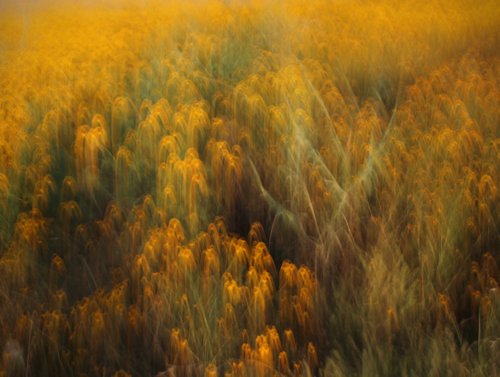 The sprinkler whispers as the water crawls up, arches its back, and then drops to the dark grass. My sister Kat and I keep our toes on the wet line, giggling when the cold beads crash our feet. The water doesn’t know what the grandmothers told us: Any day now, my sister and I can turn into Rusalki—demon mermaids haunting bathtubs and lobster tanks, hiding in kiddy pools and carwashes. The grandmothers wring their hands with worry. They say, You don’t want to die young like your father.
The sprinkler whispers as the water crawls up, arches its back, and then drops to the dark grass. My sister Kat and I keep our toes on the wet line, giggling when the cold beads crash our feet. The water doesn’t know what the grandmothers told us: Any day now, my sister and I can turn into Rusalki—demon mermaids haunting bathtubs and lobster tanks, hiding in kiddy pools and carwashes. The grandmothers wring their hands with worry. They say, You don’t want to die young like your father.
We chase each other through the backyard, checking our hair, our eyes—looking for sparks of devil-green fire, but those are just glow bugs we can shoo away. Still, Kat and I know we’re changing. The grandmothers remind us: Don’t swim alone. Stay away from the deep end. Never hold your breath for a boy.
Though our father is a simple ghost, we know our fate would be worse. We would have to haunt the watering holes where men go, sing to them, suck them off and drown them. That’s what happens to little Polish girls who don’t listen to their grandmothers.
At this hour, everything purples in the Midwest moonlight. Even our pajamas look as if they’ve been dipped in lilac. The mosquitoes are ready to dance. We do cartwheels in the dark, bodies full of blood, moving and just begging to be bit.
I look at my sister. Her blond hair is slick with night wind and grass grease, the same as mine. The strands hang on our shoulders like streamers.
My mother leans out the backdoor, calling, “Girls!” Her voice drives us to go farther, deeper into the garden. We dance past the sunflower stalks. Their gray seedy eyes stare down at us.
“Keep going,” my sister says, pushing me forward. We have to reach the back fence and yell gool. Tell all the devils and ghosts to stop chasing us; it’s past dusk. We’re safe.
“We’re so close,” Kat says.
Our feet sink into the dirt, trying to hold us back.
“Girls,” we hear our mother’s distant voice. She keeps using that word as if my sister and I are one and the same thing. We crouch down, inching forward on our stomachs, across dill and mint. We keep going, ignoring feathery thorns and prickly burrs. We are nine and ten, our bodies ripe with scent.
“There,” my sister says, pointing at the hole in the fence. Her fingers push past the hairy splinters and pet the milkweeds, pulling at the hoods and horns, exposing creamy sap and flossy seeds. There’s still time to be something else, but then the grass moves. We hear our mother’s footsteps and the sprinkler shifts, splashing our pajamas. The water strikes violet scars across our torsos.
The fabric corsets our waists and the chill rushes our bones, making our ribs stick out like hard little rainbows.
—
Photography by Michael McKniff

8 comments
Will says:
Mar 19, 2013
Simply beautiful. I can’t wait to read more from you collection.
Donna J. Long says:
Mar 21, 2013
Beautiful, surprising images. Consider sending work to Kestrel: http://www.fairmontstate.edu/kestrel Check us out.
eliza says:
Mar 26, 2013
Thanks! I will.
Of Mermaids and Seaweed: Writing “Rusalki” | BREVITY's Nonfiction Blog says:
Mar 22, 2013
[…] Fogel, author of “Rusalki” in the March 2013 issue of Brevity, reflects on the origin of her essay and the power of […]
Amy Holman says:
Mar 22, 2013
The water making violet scars in the pajamas of the girls dipped in lilac is just perfect.
Caedra says:
Mar 25, 2013
Beautiful! Can’t wait to read more of your work.
eliza says:
Mar 26, 2013
Thank you so much!
Shannon Barber says:
Mar 27, 2013
I really love this piece.